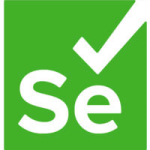What is our primary use case?
ReadyAPI is predominantly used for functional testing of the APIs. Our company has a lot of micro strategy concepts, and we are building a lot of APIs. The focus is on more validations around the APIs for faster or quicker testing rather than the frontend.
What is most valuable?
When you are working in sprints, you need to have continuous feedback. ReadyAPI definitely helps in automating very fast and rapidly. We have less coding, and we can more easily define our assertions.
We don't use it for full-blown performance testing, but normally if you are doing your functional testing, it gives you the request and response time. Anybody who is doing functional testing can see what the request and response times are and raise a flag based upon their business affiliates, that is, whether it is meeting their affiliates. You can identify this during functional testing.
What needs improvement?
It doesn't have connectors to the NoSQL database. This is one of the things where they do not have a very solid strategy today. Other solutions have an in-built mechanism where I can directly and easily connect. An API is more around a user submitting a request on the frontend. It then hits the backend, puts the data, and responds back. If I am hitting MongoDB or NoSQL databases, I do not have ready-made inbuilt solutions in ReadyAPI that can easily help me in automating it faster. In our organization, we deal with NoSQL databases, and therefore, we need Groovy. We just cannot have a connector from ReadyAPI to do that. I have to write Groovy scripts. If you have themes that are predominantly using MongoDB, it leads to more maintenance and support activity because we are introducing more code into our commission.
In terms of additional features, it can have cloud support. This is one of the things where we are getting into cloud support. We'll see how it works, but it is one of the doubts that we still have.
For how long have I used the solution?
I have been using this solution for almost four years now.
What do I think about the stability of the solution?
It's pretty good. I haven't seen any issue or ReadyAPI crash in the last four years.
What do I think about the scalability of the solution?
It is scalable. For example, if I'm running a UI test case, it can take me a minimum of 1 or 2 minutes or 45 seconds to 2 to 3 hours, depending upon the complexity of the workflow. If I want to test the same in API and I have defined my framework and everything, I could do it in 30 seconds or 40 seconds.
How are customer service and technical support?
Technical support is pretty helpful. They are pretty responsive. They come back to you to find out if you want some training on ReadyAPI. If you want to schedule, they will schedule one. They will also help your team to grow or scale up.
Which solution did I use previously and why did I switch?
When I came in, we were only using SmartBear. Before that, maybe there were normal functional automation testing tools, where you can define your API frameworks and do API testing. With such tools, you write more code for defining the API framework, which already comes inbuilt with ReadyAPI.
How was the initial setup?
The initial setup is pretty straightforward. Its deployment is pretty simple as well. It doesn't take too long to deploy it.
What's my experience with pricing, setup cost, and licensing?
The cost of a license is probably around $1,000 to $2,000. Accounting is done by my leadership. I am more into implementations and making sure all things and processes are taken care of and the frameworks are maintained and managed.
What other advice do I have?
I would say go for it. It is a really great tool. It is a game-changer because you can automate faster and quicker. It also doesn't take much time for any person to pick up the tool. It is pretty lightweight. Any person who has a little bit of technical background or 1% JavaScript knowledge can quickly use it and write code in Groovy.
I would rate ReadyAPI an eight out of ten.
Disclosure: My company does not have a business relationship with this vendor other than being a customer.














